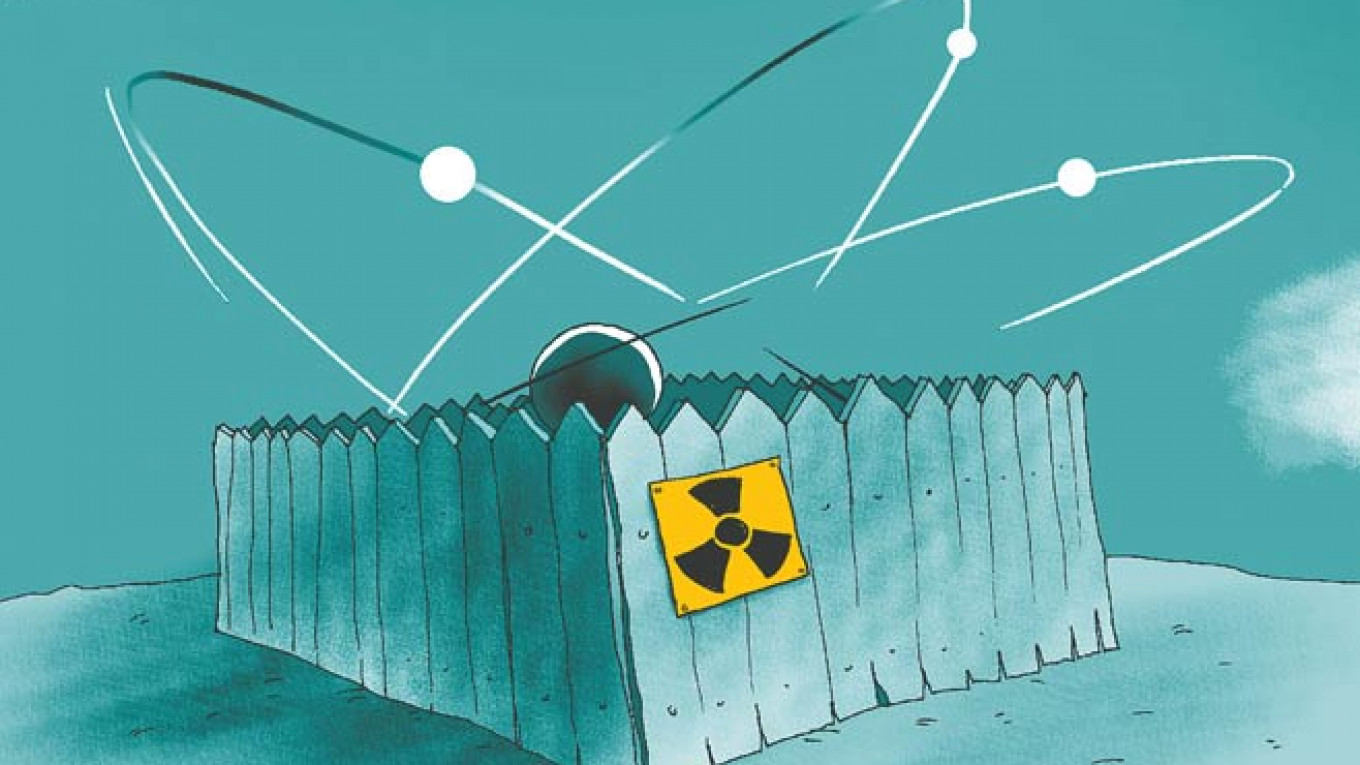More than 50 global leaders gathered in The Hague last month for the 2014 Nuclear Security Summit. This year's conference marked the initiative's third meeting since 2010, continuing a process that seeks to raise awareness about the threat of nuclear terrorism and catalyze much-needed action to secure the materials that terrorists would need to make a weapon. But time is running out.
Today, nearly 2,000 metric tons of plutonium and highly enriched uranium — the raw materials needed to produce nuclear warheads — are spread across 25 countries. With an amount of plutonium the size of a grapefruit, or enough highly enriched uranium to fit a seven-kilogram bag of sugar, a terrorist could make a bomb that could level a city. We know that al-Qaida, groups in the North Caucasus and other terrorist organizations have tried to acquire these materials.
Governments can no longer act in isolation, as though nuclear security were exclusively a "sovereign" responsibility.
Despite the acknowledged threat, the international community still lacks agreement on the steps that should be taken to secure nuclear materials. While leaders have met at two previous summits, they still have not delivered what the world needs to achieve robust and lasting confidence: a global system for securing nuclear materials that holds all states accountable to a set of common standards and best practices.
Because governments today generally approach security independently — developing their own national standards and regulations with no requirement for mutual accountability regarding implementation — the state of nuclear-materials security around the world varies widely. In some places, it is entirely inadequate.
It is time for a new approach. Governments can no longer act in isolation, as though nuclear security were exclusively a "sovereign" responsibility. States depend on one another for their nuclear security, and they can be deeply affected by other states' actions. The weakest link in the security chain threatens everyone, and that means a system is needed to identify and strengthen the weak links — a system in which states take steps to build confidence in, and accountability for, their security performance.
Critics argue that a global nuclear materials security system — one that sets standards, monitors practices and holds governments accountable — cannot be achieved without compromising the very security information that it was designed to protect. Moreover, they claim that proponents of joint action simply seek access to sensitive information.
But such criticism ignores the fact that states have already proved capable of cooperation and mutual assurance regarding their security practices. For example, over a multi-decade period of collaboration within the framework of the Nunn-Lugar Cooperative Threat Reduction Program and other strategic agreements, the U.S. and Russia have devised creative ways to reassure each other about the status and security of their sensitive nuclear materials, weapons and sites.
Such examples of bilateral nuclear-security cooperation, along with the International Atomic Energy Agency's nuclear-security peer-review service, highlight a promising point: a willingness to work together on the security of nuclear materials need not compromise sensitive information.
In other areas where risk is shared globally, internationally accepted rules and global accountability and oversight are the norm. Consider civil aviation: If a state does not comply with the standards set by the International Civil Aviation Organization, its aircraft cannot land at another member state's airports. Yet when it comes to the world's most dangerous materials, standardization, accountability and oversight are still lacking.
To address the absence of universal standards and mutual accountability for securing nuclear materials and to reduce the risk of nuclear terrorism, world leaders should seek to establish a global nuclear materials security system underpinned by four key principles:
1. The system should cover all weapons-useable materials, including nuclear materials used for military purposes. Today, only 15 percent of nuclear materials are used for civilian purposes, but no regulatory system can be effective if it applies to only a small share of the regulated items.
2. The system should employ international standards and best practices.
3. All states should commit to measures that reassure other states that their security practices are sound, while protecting sensitive information.
4. All states should commit to reducing and, where possible, eliminating their weapons-usable nuclear materials to minimize the risks these stockpiles pose. In the past four years alone, 10 countries have rid themselves entirely of such materials.
Agreement on these four principles and the commitment to a global system for securing nuclear materials would be a paramount achievement for the Nuclear Security Summit process. As our leaders convene to discuss the issue, let us hold them accountable for achieving the goal of securing all weapons-usable nuclear materials before the summit process ends in 2016. Until that happens, the threat of nuclear terrorism will persist.
Joan Rohlfing is president of the Nuclear Threat Initiative. © Project Syndicate
A Message from The Moscow Times:
Dear readers,
We are facing unprecedented challenges. Russia's Prosecutor General's Office has designated The Moscow Times as an "undesirable" organization, criminalizing our work and putting our staff at risk of prosecution. This follows our earlier unjust labeling as a "foreign agent."
These actions are direct attempts to silence independent journalism in Russia. The authorities claim our work "discredits the decisions of the Russian leadership." We see things differently: we strive to provide accurate, unbiased reporting on Russia.
We, the journalists of The Moscow Times, refuse to be silenced. But to continue our work, we need your help.
Your support, no matter how small, makes a world of difference. If you can, please support us monthly starting from just $2. It's quick to set up, and every contribution makes a significant impact.
By supporting The Moscow Times, you're defending open, independent journalism in the face of repression. Thank you for standing with us.
Remind me later.






